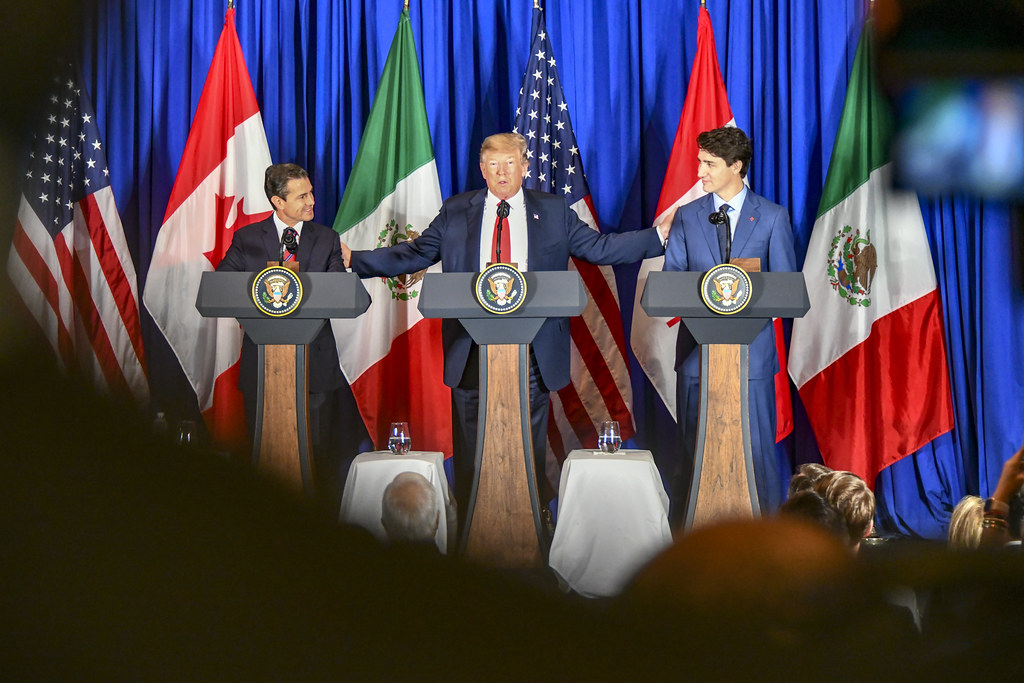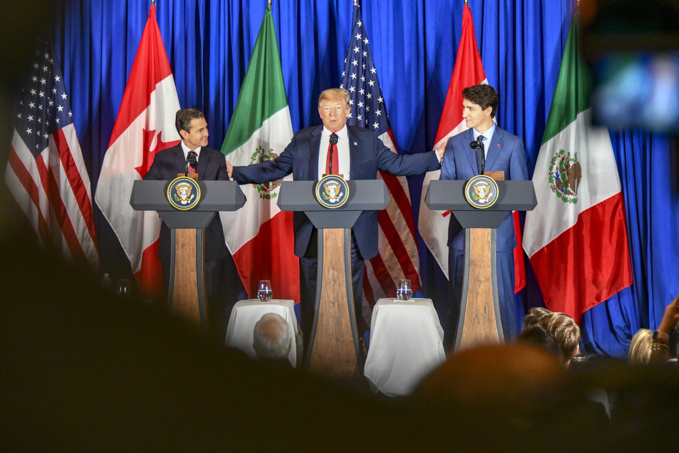The new agreement was reached by the leaders of the three countries in November 2018 at the G20 summit in Buenos Aires. It is replacing the North American Free Trade Area (NAFTA), which at that time was already 25 years old, and which Trump has actively criticized from the very beginning of his presidency, considering the deal’s terms unfair to the United States.
The discussion began in 2017 and came under pressure from Washington, which threatened to impose duties on goods from Canada and Mexico. The USMCA is reviewing rules for the participants' access to the domestic markets of the three countries, tariffs and some labor laws. Most of all, it affects the automotive industry and working conditions.
In the first case, automakers will be required to produce 75% (13% more) of components in one of the three countries participating in the agreements. In addition, it contains a requirement that more components should be produced by employees with a salary of at least US $ 16 per hour, and workers in these industries should be given the right to join unions. On the one hand, these measures are intended to improve working conditions in Mexico, and on the other, to make it less attractive to American automobile companies in terms of bringing their capacities there.
In addition, the United States will gain wider access to the dairy markets of Canada, whose authorities restrict foreign imports.
Signing the document, Trump said that it will give an increase of 1.2% of GDP, and also lead to the creation of jobs. However, according to the estimates of the US commission on international trade, made before the coronavirus pandemic and the ensuing economic downturn, under those conditions this would have yielded only 176 jobs in six years and a GDP growth of 0.35%. The commission then concluded that the agreement would have a “moderate” positive effect.
source: cnn.com
The discussion began in 2017 and came under pressure from Washington, which threatened to impose duties on goods from Canada and Mexico. The USMCA is reviewing rules for the participants' access to the domestic markets of the three countries, tariffs and some labor laws. Most of all, it affects the automotive industry and working conditions.
In the first case, automakers will be required to produce 75% (13% more) of components in one of the three countries participating in the agreements. In addition, it contains a requirement that more components should be produced by employees with a salary of at least US $ 16 per hour, and workers in these industries should be given the right to join unions. On the one hand, these measures are intended to improve working conditions in Mexico, and on the other, to make it less attractive to American automobile companies in terms of bringing their capacities there.
In addition, the United States will gain wider access to the dairy markets of Canada, whose authorities restrict foreign imports.
Signing the document, Trump said that it will give an increase of 1.2% of GDP, and also lead to the creation of jobs. However, according to the estimates of the US commission on international trade, made before the coronavirus pandemic and the ensuing economic downturn, under those conditions this would have yielded only 176 jobs in six years and a GDP growth of 0.35%. The commission then concluded that the agreement would have a “moderate” positive effect.
source: cnn.com



















